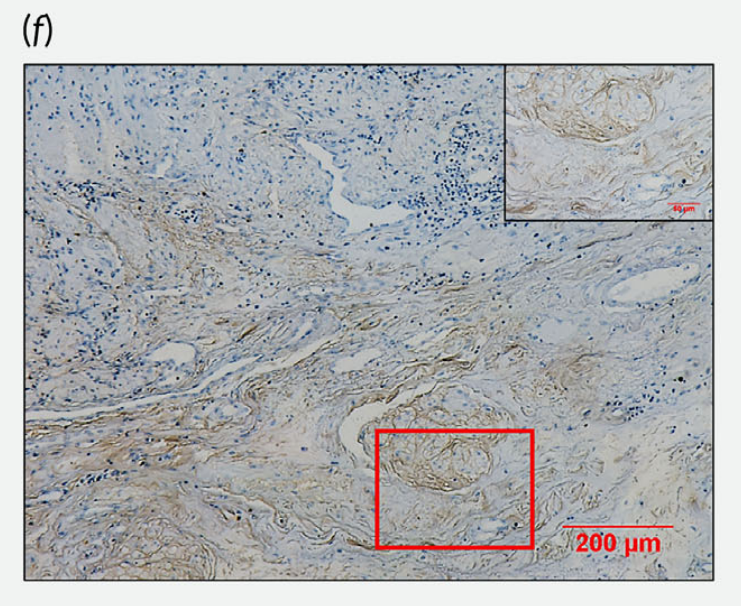
摘要
Cancer-associated fibroblasts (CAFs) play a key role in orchestrating the tumor malignant biological properties within tumor microenvironment and evidences demonstrate that CAFs are a critical regulator of tumoral immunosuppression of the T cell response. However, the functions and regulation of CAFs in the expression of programmed death-ligand 1 (PD-L1) in melanomand colorectal carcinoma (CRC) are not completely understood. Herein, by scrutinizing the expression of α-SMA and PD-L1 in melanoma and CRC tissues, we found that CAFs was positive correlated with PD-L1 expression. Further analyses showed thaCAFs promoted PD-L1 expression in mice tumor cells. By detecting a majority of cytokines expression in normal mice fibroblasts and CAFs, we determined that CXCL5 was abnormal high expression in CAFs and the immunohistochemistry and isitu hybridization confirmed that were CAFs which were expressing CXCL5. In addition, CXCL5 promoted PD-L1 expression in B16, CT26, A375 and HCT116. The silencing of CXCR2, the receptor of CXCL5, inhibited the PD-L1 expression induced by CAFin turn. Functionally, CXCL5 derived by CAFs promoted PD-L1 expression in mice tumor cells through activating PI3K/AKT signaling. LY294002, the inhibitor of PI3K, confirmed that CXCL5 forested an immunosuppression microenvironment by promoting PD-L1 expression via PI3K/AKT signaling. Meanwhile, the B16/CT26 xenograft tumor models were used and both CXCR2 and p-AKT were found to be positively correlated with PD-L1 in the xenograft tumor tissues. The immunosuppressive action of CAFs on tumor cells is probably reflective of them being a potential therapeutic biomarker for melanoma and CRC.
keywords:CXCL5, CAFs, PD-L1, melanoma, colorectal cancer
合作部分结果:

合作技术:
ISH探针




